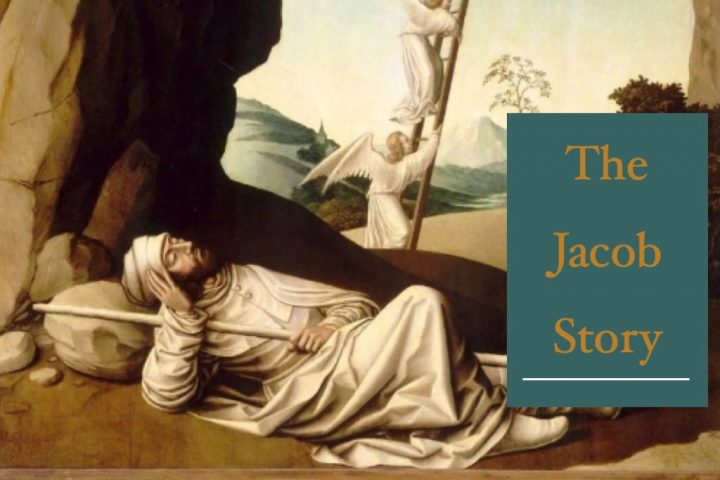Sermons by Brian Morgan (Page 3)
Doing Justice, the Pathway to JOY
Isaiah 58:1-14
Our text this week opens with a heated exchange between God and his people. The people are disgruntled because they have been zealous in their ritual observances, but find that God no pays absolutely no attention. “Why do we fast, but you do not see?” Sound familiar? In response, God sounds an alarm from heaven, as if this is a life and death matter, therefore we better get it right. There is gaping disconnect between their “religion” and their relationships, an insidious hypocrisy that perverts righteousness for profit and destroys lives. In relentless severity God exposes their “religion” for what it really is. What happens next is not what we would expect. Instead of thundering down judgment, God shows them the road home and the manifold blessings that pour forth when his people join him in doing the holy work of justice. Read his appeal (vv.6-14) out load before Sunday and allow the repetitive cadences to wash over your soul with increasing intensity. This is God’s “I have a dream!” speech. May it stir our hearts and awaken us from sleep to “ride on the heights of the earth” (58:14). After the message we will partake of the Lord’s table together. So have the elements ready before we start. The love of Christ be with you all.
Draw Near, Lament and Listen
Isaiah 49:1-13
In the first message (Isaiah 40:1-11) of our series, “Comfort O Comfort My People,” God gave voice to his unshakable commitment to rescue his people from exile and, in so doing, set in motion the salvation of the whole world. This week the good news will continue, but to embrace it fully we will have to learn to do what our culture fears doing—to lament. The reason they are afraid, suggests Tom Wright, “is because it seems to be afraid of the fear itself, frightened that even to name grief will be to collapse forever. We have keep going, we tell ourselves, we have to be strong. Strong, yes. Strong like Jesus who wept at the tomb of his friend. Strong like the Spirit who raised Jesus from the dead and will give life to our mortal bodies too — but who, right now, is pleading for us with groanings too deep for words.” If we embrace the biblical pattern of lament in its bold honesty and audacious trust, we will discover as the psalmists, prophets and Jesus found, hidden treasures of God’s presence that surpass understanding.
Receive God’s Word of Comfort
Isaiah 40:1-2, 27-31, 43:1-7
The pandemic continues unabated and it’s not going anywhere soon. For many us, it is getting personal, as the virus has infected co-workers, friends and/or family members. Along with increasing human, economic and social costs, many are experiencing a crisis in their faith. As Tom Wright suggests, “Tears, locked doors and doubt…sum up a lot of where we are globally.” Living lives in fear and isolation erodes our faith, darkens our hope and paralyzes our love. The length and severity of the pandemic would have shaken my soul, had I not been teaching a course on Isaiah 40-66 for the last 25 weeks. The prophet’s words address the greatest disaster in the Hebrew scriptures, the Babylonian exile. In midst of unending darkness and despair, God’s words blaze with light, comfort, healing and hope. As we immersed ourselves in Isaiah’s oratorio, we experienced a renewal of our faith, a strengthening of our hope and a new flame for our love. For the next four weeks we will be exploring significant themes in these chapters in the hope of giving you a prophetic imagination to see how God is at work in the midst of the darkness.
Shepherd, Guide, Protector and Friend
Psalm 23
When life spirals out of control, our most common response is fear. Even for those of us who are followers of Jesus, it is easy to lose our focus and be overcome with anxiety, even despair. This week in the midst of the coronavirus crisis we will draw near to our true Shepherd in Psalm 23. Derek Kidner writes, “Death and strength underlie the simplicity of this psalm. Its peace is not escape; its contentment is not complacency: there is a readiness to face deep darkness and imminent attack, and the climax reveals a love, which hime towards no material goal but to the Lord Himself.”
Can Children Make You Happy? Ask Leah and Rachel
Gen 29:31 – 30:24
The subject of this week’s text is children. The promise of children was a significant driving force in God’s covenant to Abraham, especially when given to barren women like Sarah and Rebekah. What follows is a very surprising birth narrative of Jacob’s twelve children, and with it we discover how two wounded women learn to connect with God. These two sisters give voice to the question, “Can children make you happy? At what price?” After we examine this question we will address the theme of children in the context of the New Covenant.
Marriage At What Price?
Gen 29:15-30
Anyone who is married knows it doesn’t take long to wake up from the dream-like world of the honeymoon and discover you married a sinner. For some, the revelation of these changes can be so dramatic that they may even question the sanctity of the marriage. No one woke up to the fact that he had in fact married the wrong girl as quickly as Jacob. Can you imagine the initial shock to wake up after your wedding night only to find the bride’s sister in your bed? The question our text addresses is, “Can we be blessed by God if we are seemingly trapped in an unhappy marriage?”
A Courtship Made in Heaven
Gen 29:1-20
Jacob’s heavenly encounter with God and angels at Bethel has energized him as he journeys to Haran with eager anticipation of what God might have in store. Approaching the city, he encounters a beautiful girl by a well, a typical scene in the Bible that initiates a betrothal. The story strikes a resonant chord in every man, who wants to be a “prince charming”, and every woman who longs to be a beauty worth searching for. But deeper still, the story speaks to the longing of our hearts to be sought and courted by God.
Besieged by God
Gen 28:10-22
We come to place in the Jacob story that is every parent’s nightmare, when a son or daughter goes off into exile. The conditions are anything but ideal. “The security of the sun has been replaced by the dangers of night. The comfort of his parents’ tents has been replaced by a rock. Behind him lays Beersheba, where Esau waits to kill him; ahead of him is Haran, where Laban waits to exploit him. He is situated between a death camp and a hard-labor camp” (Bruce Waltke). Though terrifying, exile can be a place of profound transformation. When we are offstage in extreme loneliness, we are better to hear the tender voice of God pursuing us. Once Jacob hears God’s word, his ordinary journey is transformed into a holy pilgrimage. May it be true of us as well.
Family Dynamics and the Coveted Blessing
Gen 27:1-29
In this week’s text we are drawn into the intimacies of a sacred meal where the patriarchal blessing, with all its eternal promises, will be passed down from one generation to the next through the chosen son. Sadly however, the sanctity of the occasion is crushed by dysfunctional family dynamics, where each party serves their personal interests through deceit, blasphemy, manipulation, and a literal “coverup.” How will God intervene to further his kingdom when the chosen family has all but denied God’s presence? There is so much in this text that speaks to family dynamics, birth order, competition, favoritism and the “coveted blessing” we all long for. I wish I had three weeks to tease our all of its implications.
Twins At War
Gen 25:19-34
This week we begin a new series on the Life of Jacob: Encountering God in the ordinary and often messy stuff of life. Paul Stevens writes, “As we travel through all the stages of Jacob’s life we discover that God is with Jacob in every aspect of his journey. The Bible is not an instruction manual that contains principles of spirituality. It is a story, a story about God in search of humankind and his progressive establishment of his kingdom on earth. And the amazing thing about this God is that he condescends to come right into the midst of our mundane, messy worlds of home, work and play as the stage where this ‘holy’ work occurs.” Each week we will discover how God is at work forging Jacob’s identity in the midst of a very dysfunctional and fragmented family, one that may be strikingly similar to our own.
We Beheld His Glory: The Light
John 1:6-13
Like a musical overture to a symphony, the prologue to John’s gospel introduces the major themes of his work — the pre-existent Word, light, life, witness, darkness, rejection, believing, birth, glory. It is poetic — prose, dense with layers of meaning, ambiguity and especially surprise. After we are initially captivated and seized by awe with John’s exalted view of the the Word — preexistent, creator of all things, equal with God (John 1:1-5) — we can’t help but wonder, How will the Word make its grand entrance on planet earth? What kind of reception will the Word receive? What impact will it have in a world shrouded in darkness? The answers John gives are not what we would expect, but equip us with realistic expectations and tools for how to spread God’s light and love in a hostile world.
Rome at Last: The End of the Beginning
Acts 28:1-31 This week we come to the conclusion of Dr. Luke’s two-volume work Luke/Acts. It has been a long, adventuresome journey, especially following Paul’s relentless energy and patient endurance, as he spread the gospel over 10,000 miles, visiting 29 cities, 8 provinces and 2 continents. With great skill, Luke has captured our imagination and held us in suspense through Paul’s countless trials and shipwrecks, wondering how will it all end. Will Paul make it to Rome? Will he get his day in court? Will Paul be vindicated or martyred? On the surface, Luke’s ending seems inconclusive, leaving our questions unanswered. But on closer examination, it fits his purposes perfectly, pulling us into the drama in ways we couldn’t have imagined. Acts 28:1-31




